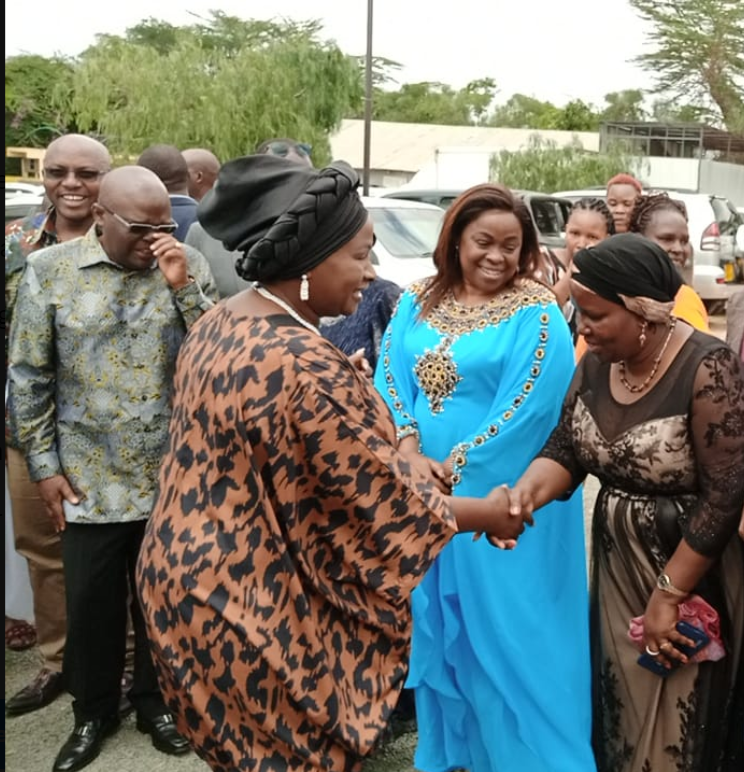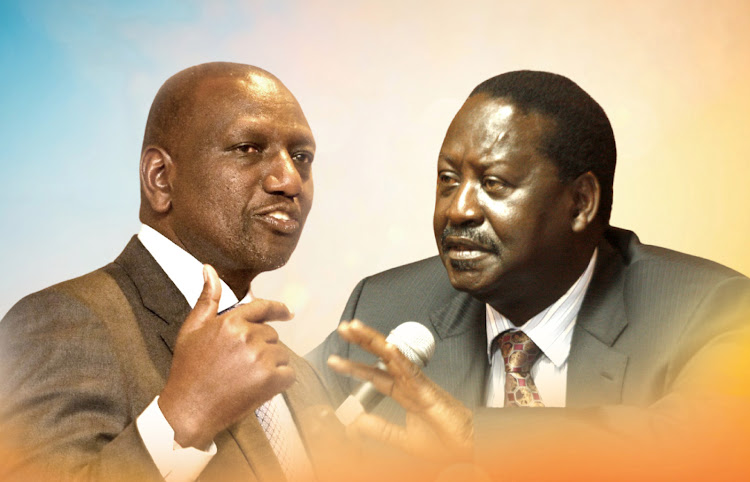[ad_1]
After strategists successfully canvassed for the nomination of Justice Martha Koome as the next Chief Justice, attention has now shifted to the Independent Electoral and Boundaries Commission whose composition holds the key to winning the 2022 general elections. According to highly placed sources, the same strategists are working on a formula where current IEBC chairman Wafula Chebukati will be forced to resign after the referendum on the Building Bridges Initiative and his position taken over by a member from a minority community in Kenya. By last week, those involved were busy going through previous applicants for IEBC chair and performance during interviews. During the last process where Chebukati emerged winner, 10 persons were shortlisted. They were Florence Mwangangi, Taib Ali who was at one time Mombasa mayor, Tukero Kina and Lucas Naikuni. Others who applied were Margaret Shava, John Kangu, Roseline Odede, David Mareka and David Malakwen. Chebukati replaced then chairman Issack Hassan less than a year to 2017 general elections. As for now, those involved are zeroing in on Taib if he decides to apply once Chebukati is haunted out of office. Initially, they were pushing to have Supreme judge Isaac Lenaola take over but the judge has kept them guessing. Other sources reveal the recent swearing in of a six member selection panel chaired by Elizabeth Muli is part of a planned coup against Chebukati. The panel members are Gideon Solonka, Elizabeth Meyo, Muli, Dorothy Kimengech, Rev Joseph Ngumbi and Faradim Abdalla. The panel is to advertise for applications for positions for members of the commission in the Kenya Gazette then receive applications within 14 days with shortlisting done by May 24. Currently, there are only three commissioners at IEBC – Chebukati, Abdi Guliye and Boya Molu after three commissioners resigned citing frustrations from the chair. Those who left are vice chair Connie Maina, Margaret Mwachanya and Paul Kurgat.

Wafula Chebukati
Another commissioner, Roslyn Akombe fled to the United States days to the repeat presidential election, citing threats on her life. In their resignation, the three faulted Chebukati’s ability to lead the commission saying under his leadership the commission boardroom had become a venue for peddling misinformation, grounds for brewing mistrust and a space for scrambling and chasing individual glory and credit. Their resignation came in the backdrop of a section of the commissioners sending then chief executive officer Ezra Chiloba on compulsory leave to allow an audit of the 2017 general election financial processes. Chebukati is backed by the two commissioners – Guliye and Molu, who are still with him after sending Chiloba home. Weekly Citizen has information, the selection panel duties may just be a formality as those to fill the vacant slots have already been identified with instructions, once in office, Chebukati must be shown the door. What has been helping Chebukati to survive is lack of commissioners’ quorum at IEBC. Once the quorum is met, Chebukati removal will top the agenda. Pressure will put on Chebukati to resign according to the schemers. When he got his letter sending him home, Chiloba accused Chebukati of engaging in a witch-hunt and even went to court to compel IEBC to reinstate him as the chief executive officer but the Employment and Labour Relations Court declined his request. According to sources, a section of those involved are not comfortable with acting chief executive officer Hussein Marjan. His association with Chebukati is also haunting him. However, some of those involved in streamlining IEBC are said to be pushing for Marjan confirmation on grounds, he has also been doing the state’s bidding at the electoral agency and is now being considered a safe pair of hands to head the body’s secretariat.

Isaac Lenaola
The IEBC other top officials are Obadiah Keitany (director finance), Jason Aloyo (manager budget), Radi Masudi (director voter registration), Gideon Balang (operations), Moses Sunkuli (voter registration manager), Jackton Nyonje (training) and Yonah Ogalo (field services). The sources revealed that the choice of members of the minority communities to head IEBC is informed by the fact that they are unlikely to field presidential candidates and hence those picked will not have tribal allegiance to the candidates. And just as it happened at the Judicial Service Commission where the state picked pro-establishment figures as the majority to steer it before inviting applicants for the CJ’s post, the stage has been set for the recruitment of friendly IEBC commissioners by appointing pro-establishment figures to the selection panel. The IEBC Act states that the composition of the selection panel should comprise nominees from the Public Service Commission, representatives from the legal profession, the Christian and Muslim faith as well as academia. But one of the members, Dorothy Jemator forwarded to the panel by Law Society of Kenya was not sworn in after Justice Antony Mrima issued orders suspending her appointment to the panel until a case challenging her position is heard and determined. A closer look at the professional undertakings of those selected shows they are pro-establishment and hence will select pro-establishment IEBC commissioners. For instance, the chair of the selection panel Muli has been going to bed with the system for decades.

Taib Ali Taib
Muli is the wife of Nduva Muli, a former permanent secretary ministry of Transport and later managing director Kenya Railways. Her husband, an alumnus of University of Aberdeen (Land Economics) and Moi University (MBA), is the son of Mathew Guy Muli, a former Attorney General. Nduva’s sister is Justice Agnes Murgor, wife of lawyer Philip Murgor who was also interviewed by JSC for the CJ’s position. Muli’s husband, Nduva, unsuccessfully contested for the 1997 Kangundo parliamentary seat but lost. Muli was also the vice chair of Commission for the Implementation of the Constitution that was headed by Charles Nyachae and holds a PhD from Stanford Law School. She is also a member of the Presidential Task Force on the Review of Power Purchase Agreements which was appointed on March 29 2021 by the President. Other members are John Ngumi (chair), Kennedy Ogeto, Justice (Rtd) Aaron Ringera, James McFie, Mohammed Nyaoga, Stanley Kamau, Wanjiku Wakogi, Isaac Kiva, Caroline Kittony, Elizabeth Rogo, Sachen Gudka, James Mwangi, John Mutua and Yida Kemoli. Another member of the IEBC selection panel with close links with the state is Gideon Solonka. Solonka was among a handful of individuals the president rewarded in 2019 by appointments to parastatal boards. He was appointed to the Retirement Benefits Appeals Tribunal alongside James Mamboleo, Wangechi Gikonyo and Veronica Leseya-Owende.

Hussein Marjan
Another member of IEBC selection panel with links to the state is Elizabeth Meyo. Meyo served at the Kenya Revenue Authority as the Commissioner for Domestic Tax before her retirement in October last year. She had been with KRA for over two decades serving in departments. The IEBC selection panel will nominate successful candidates for appointment by the president. According to sources, Supreme Court judge Justice Isaac Lenaola is being fronted for the IEBC’s chairmanship to replace Chebukati but so far he has not shown interest. Lenaola hails from the minority Samburu community which is part of the Maa community. Those involved are comfortable with Lenaola due to his sterling performance at the Judiciary and principled leadership. But those opposed to Lenaola argue, his departure will create vacuum at Supreme Court just when the process to fill vacant positions has been held. According to the constitution, the office of the chairperson or a member of the commission becomes vacant if the holder dies or resigns from office by notice in writing addressed to the President or is removed from office under any of the circumstances specified in Article 251 and Chapter Six of the constitution. The president is then expected to publish a notice of a vacancy in the Kenya Gazette within seven days of the occurrence of such a vacancy. Whenever a vacancy arises, the recruitment of a new chairperson or member is expected to commence immediately after the declaration of the vacancy by the president.
[ad_2]
Source link



















